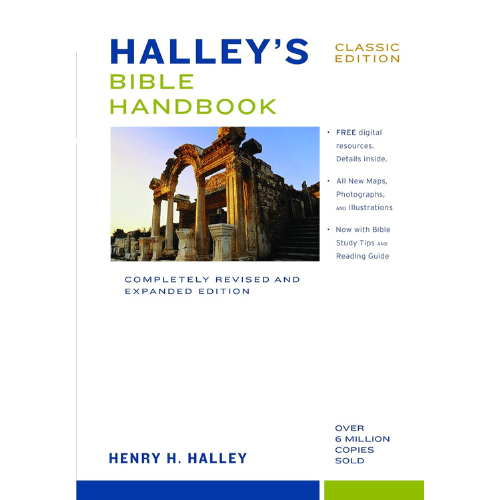What if one of the greatest spiritual dangers of our time is already unfolding right before our eyes? The Bible speaks clearly about a future event called the great apostasy—a widespread falling away from the faith. In 2 Thessalonians 2:3, apostle Paul warns believers not to be deceived, because this rebellion must come before the return of Christ. It’s not just a slow drift; it’s a dramatic departure from truth.
As we look around, we see confusion, compromise, and counterfeit teachings. Could this be what Scripture foretold? Or are we still waiting for something even greater?
This study matters because the stakes are eternal. God’s Word urges us to stay awake, to watch, and to discern the times. When we understand what the Bible says about the great apostasy, we’ll be better prepared to stand firm in truth.
Parables: The Mysteries of God’s Kingdom Revealed Through the Stories Jesus Told by John MacArthur
Throughout this post, we’ll explore the biblical warnings, dig into 2 Thessalonians, and compare two major end-time views: Dispensationalism and Partial Preterism. Each offers a different lens for interpreting this sobering prophecy.
Let’s not approach this casually. Rather, let’s seek clarity, conviction, and confidence in what God has revealed about the days to come.
What Is the Great Apostasy?
When we talk about the great apostasy, we’re describing more than just people losing interest in church. It’s a dramatic spiritual revolt.
The word apostasy comes from the Greek apostasia, which means defection, rebellion, or falling away. In 2 Thessalonians 2:3, Paul warns, “Don’t let anyone deceive you in any way, for that day will not come until the rebellion occurs.” The word “rebellion” here is apostasia—a willful departure from the truth.
This isn’t about outsiders ignoring God. It’s about people who once professed faith turning their backs on it. That’s what makes the great apostasy so sobering. It involves spiritual deception, widespread false teaching, and deep moral compromise. In fact, Jesus warned that in the last days, “many will turn away from the faith” (Matthew 24:10).
Throughout Scripture, we’re told to guard the truth, stay alert, and cling to sound doctrine. Clearly, this falling away is a sign of serious end-time trouble.
But this doesn’t happen overnight. False ideas creep in. Truth gets watered down. Holiness is replaced with worldly thinking. And before long, entire communities drift from the gospel.
Therefore, we must be discerning. We must test what we hear, measure it by the Word, and stay rooted in Christ. The great apostasy isn’t just a prophecy—it’s a warning for all of us. Let’s take it seriously and stand firm in the faith.
Biblical Warnings About Falling Away
The Bible doesn’t leave us in the dark about the dangers of falling away. In fact, the warnings are both clear and consistent.
In 1 Timothy 4:1, Paul writes, “The Spirit clearly says that in later times some will abandon the faith.” That’s not a vague possibility—it’s a sure prediction. These individuals will follow deceptive spirits and demonic teachings. That’s one of the clearest signs of the great apostasy.
Then, in 2 Peter 2, we see a sobering picture of false teachers. They secretly introduce destructive heresies, even denying the Master who bought them. Because of them, the truth is slandered. Sadly, many will follow their shameful ways. That’s spiritual sabotage from within.
Jesus also warned us in Matthew 24:10–13. He said many would turn away from the faith. Hatred would grow. False prophets would rise. Most chilling of all, He said, “The love of most will grow cold.” That phrase should stop us in our tracks.
Clearly, the great apostasy isn’t just a fringe issue—it’s a central theme in end-time prophecy. Across the New Testament, we see the same pattern: deception, division, and defection.
So, what does an apostate church look like? An apostate often retains the form of religion but denies its power. It tolerates sin, rejects truth, and prioritizes popularity over holiness. Apostate exalts self instead of Christ.
Therefore, we must stay rooted in Scripture. We must test the spirits and watch our doctrine closely. God hasn’t left us without warning—He’s calling us to be awake, alert, and faithful in the face of the coming storm.
The Great Apostasy in 2 Thessalonians 2
Apostle Paul wrote his second letter to the Thessalonians to calm their fears. Some thought the Day of the Lord had already come. Understandably, confusion had crept in. False teachings and forged letters were spreading panic. But Paul reminded them of what he already taught.
In chapter 2, he makes it clear—the return of Christ won’t happen until the great apostasy takes place. First, there will be a visible rebellion. Then the “man of lawlessness” will be revealed. This man, also called the “man doomed to destruction,” sets himself up in God’s temple. He opposes everything sacred. He exalts himself above God. That’s blatant, end-time rebellion.
Along with this, Paul says Satan will empower him with false signs and wonders. These aren’t parlor tricks—they’re supernatural deceptions meant to fool those who refuse the truth. Sadly, many will be swept away. Paul says they perish because “they refused to love the truth and so be saved.” As a result, God sends a strong delusion. That’s terrifying but just.
Yet Paul doesn’t write this to scare us. He writes to steady us. He reminds the Thessalonians—and us—not to be “easily unsettled or alarmed.” The great apostasy will shake the world, but it shouldn’t shake our faith. Paul’s pastoral heart shines through. He calls us to stand firm, hold to the truth, and remember our eternal hope in Christ.
Even as darkness increases, we can walk in the light. God is faithful, and He will strengthen those who remain anchored in His Word.
Dispensational View of the Great Apostasy
The Dispensational view is one of the most widely held approaches to end-time prophecy, especially among evangelical Christians today. Let’s break it down.
A Prophetic Timeline: Rapture, Tribulation, Millennium
Dispensationalism teaches that history unfolds in distinct “dispensations” or stages of God’s plan. Right now, we’re in the Church Age. The next big event is the Rapture—when believers are taken to be with Christ. After that comes a seven-year Tribulation, followed by Christ’s thousand-year reign on earth—the Millennium.
The Great Apostasy: A Future Global Rebellion
According to this view, the great apostasy is a future, worldwide rejection of biblical truth. It happens before or around the time of the Rapture. Many see it as the spiritual climate that paves the way for the Antichrist’s rise.
This rebellion includes people abandoning sound doctrine, embracing deception, and loving pleasure over holiness. It’s not just a few individuals drifting—it’s a dramatic collapse of truth in churches and culture.
Tied to the Antichrist and a False Religion
Dispensationalists link the great apostasy with a coming religious system. It appears Christian on the outside but is deeply corrupted within. This system will likely support the Antichrist, who demands worship and opposes all that is truly godly.
Some associate this with a one-world religion or a compromised global church. The warning is strong: don’t be fooled by spiritual counterfeits.
Teachers Who Hold This View
Many respected Bible teachers support this interpretation, including John MacArthur, David Jeremiah, and the late Tim LaHaye. The Left Behind series popularized this view for a modern audience, emphasizing the urgency of readiness and discernment.
Even if we don’t agree on every detail, this view reminds us that the great apostasy is real, and we must stay rooted in truth.
Partial Preterist View of the Great Apostasy
The Partial Preterist view offers a very different lens for interpreting end-time prophecy. It’s rooted in history, not future speculation.
What Is Partial Preterism?
Partial Preterism teaches that many New Testament prophecies were fulfilled in the first century. While Christ’s final return is still future, much of the apocalyptic language in Scripture points to events surrounding the fall of Jerusalem in AD 70.
This view helps us read prophecy with ancient ears—hearing it as the early church would have understood it.
The Great Apostasy in the Early Church
In this view, the great apostasy happened during the first generation of believers. Some point to Israel’s rejection of Jesus as Messiah. Others see it in the early church’s struggle with false teachers, persecution, and doctrinal compromise.
Rather than a future global rebellion, it’s understood as a real and pressing threat in the first century—one Paul and the apostles actively fought against.
Who Was the Man of Lawlessness?
Partial Preterists identify the “man of lawlessness” in 2 Thessalonians 2 with historical figures like Nero or corrupt high priests. These leaders exalted themselves, persecuted the faithful, and aligned with Rome’s ungodly power.
The description fits Nero’s brutal reign, but others argue it refers to the spiritual corruption within the temple system before its fall.
The Destruction of Jerusalem in AD 70
A central event in this view is the destruction of Jerusalem. Jesus predicted this judgment (Matthew 24), and Paul’s words echo that theme. For Partial Preterists, the great apostasy helped trigger this divine judgment. The temple’s fall marked the end of the old covenant age and fulfilled much of what Revelation and the epistles warned about.
This view reminds us that prophecy was meaningful for its first readers. It also challenges us to see God’s faithfulness through history—even in judgment.
Halley’s Bible Handbook, Classic Edition
The bestselling Bible handbook of all time with millions of copies sold, the Halley’s Bible Handbook makes the Bible’s wisdom and message accessible to everyone.
Comparing the Two Views
When we compare these views, we find both agreement and contrast. First, both sides fully affirm that the great apostasy is real and dangerous. Scripture clearly warns us about a falling away from truth, whether past or future.
However, the timing and scope differ significantly. Dispensationalists see the great apostasy as a future, global rebellion just before the rise of the Antichrist. Partial Preterists believe it was fulfilled in the first century through Israel’s rejection of Christ and early church defections.
Their views on prophetic fulfillment also diverge. Dispensationalism sees 2 Thessalonians 2 and much of Revelation as still unfulfilled. Partial Preterists see many of those prophecies as already completed in AD 70.
Both have strengths. Dispensationalism keeps us watchful for coming deception and teaches urgency. Partial Preterism helps us see the historical roots of prophecy and how God worked in the early church. Yet both also have limits. Dispensationalism can lead to speculative timelines. Preterism can feel too distant or disconnected from today’s spiritual challenges.
So, what can we learn—regardless of our end-time views?
First, the great apostasy calls us to stay grounded in truth. Second, deception is always a threat, whether past or future. Finally, we must cling to Christ, not timelines.
Whatever our eschatology, we’re called to endure in faith, love truth deeply, and remain alert in every season.
Staying Faithful in the Midst of Apostasy
In light of the great apostasy, we can’t afford to coast spiritually. We need sharp discernment and unwavering love for the truth.
First, we must know the Word. Not just casually—deeply. God’s truth anchors us when false teaching spreads. Without it, we’re easily swayed. So let’s stay in Scripture daily and test everything by it.
Next, we must reject compromise. Even when it’s subtle. The great apostasy doesn’t begin with open rebellion—it starts with small concessions. That’s why we must guard our hearts and pursue holiness in a world that celebrates sin. But we’re not meant to do this alone. We need one another. In community, we grow stronger, wiser, and more alert. Therefore, let’s stay connected to faithful believers who speak truth in love. At the same time, we walk humbly. We don’t stand because we’re smarter—we stand because of God’s mercy. That humility keeps us teachable and dependent on Him.
Above all, we hold onto hope. The great apostasy may sweep through the world, but God always preserves a remnant. He knows who are His. He strengthens those who seek Him.
So let’s press on with courage. Though the days grow darker, our light can still shine. Truth still matters. And God is still at work—keeping, guiding, and preparing His people for what lies ahead.
Final Thoughts on the Great Apostasy
We’ve seen that the great apostasy is no small matter. It’s a serious warning woven throughout Scripture about the last days. Whether we believe it’s past or future, the message is clear—truth will be rejected, and deception will increase. Therefore, we must stay alert. Even so, we don’t live in fear. We stand in the strength of Christ, who never changes and never fails His people.
Let’s take this moment to examine our faith. Are we clinging to the truth or drifting with the culture? Are we grounded in God’s Word? Now is the time to wake up, press in, and hold fast. Jesus is our anchor in every storm. Though the great apostasy may shake the world, it cannot shake those who are rooted in Him. So let’s remain faithful—watching, waiting, and walking in truth together.
Frequently Asked Questions (FAQ) About the Great Apostasy
1. What exactly is the great apostasy? The great apostasy refers to a widespread falling away from the Christian faith, marked by deception, rebellion, and rejection of truth.
2. Is the great apostasy happening now or in the future? That depends on your view of Bible prophecy. Some believe it already happened in the first century, while others see it as future.
3. How can we recognize signs of apostasy today? We see signs through false teaching, moral compromise, and a loss of love for biblical truth—even within churches and ministries.
4. What role does the Antichrist play in the great apostasy? Many believe the Antichrist will rise during or after the apostasy, leading people further into deception and demanding worship.
5. How can believers stay faithful during times of apostasy? We stay faithful by knowing God’s Word, loving the truth, staying in community, and relying fully on Christ for strength and guidance.





